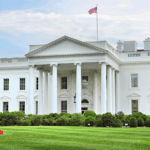Contending that “we have a system which works quite well,” three union officials sat before the Senate Commerce and Labor Committee this week to testify against a bill that would limit the ability of public sector unions in Washington to overcharge employees for workplace representation.
Introduced by Sen. Jim Honeyford (R-Yakima), SB6053 would prevent workers who have never signed up for union membership from paying for anything more than workplace representation.
Under current law, public employees’ unions benefit from state-granted monopolies on workplace representation. Once a union is certified as the exclusive bargaining representative in a public workplace, it alone represents all of the employees in that workplace, including those employees who do not wish to be represented.
In return for their services, unions are allowed to benefit from “union security” clauses requiring all workers to pay union fees as a condition of employment.
The system does work quite well—for union executives. It does not work nearly so well for those forced to accept and pay for union representation.
Fact-Checking the Unions
Three union officials testified against SB6053: Greg Devereux, head of the Washington Federation of State Employees (WFSE), Michael Boe of Teamsters 117, and Jeff Johnson, President of the Washington State Labor Council (WSLC).
Most of their arguments relied on word games, distinctions without a difference, and fuzzy rhetoric about union democracy and the importance of the labor movement. None of their more substantial concerns with SB6053 were grounded in reality.
Testifying first, Mr. Devereux complained that the bill “prohibits the collection of membership dues through payroll deduction.” Mr. Johnson voiced a similar concern. However, while unions’ ability to use public resources to automatically deduct union dues from workers’ paychecks is completely inappropriate, nothing in SB6053 would inhibit the ability of union executives to continue benefiting from this state subsidy.
Still, it’s not hard to understand why union executives are so defensive. As Devereux testified, if their dues deduction ability was eliminated and labor unions had to collect dues from their members just like every other membership association, his union “would have to go individually and talk to every [WFSE-represented] state employee, all 40,000 of them, and ask them if they wanted to pay union dues.”
In other words, unions’ compulsory dues collection process—and, by extension, Devereux’s paycheck—might be threatened if unions had to ask workers to join, just like every other membership organization must.
Next, Devereux claimed that SB6053 “singles out” unions for regulation while not affecting other membership organizations like the Association of Washington Businesses and the National Federation of Independent Businesses.
Sen. John Braun (R-Chehalis) would have none of it, and he pointed out that it is somewhat “disingenuous to compare a voluntary association” like AWB or NFIB “with an association that is required as a basis of employment.”
Lastly, Johnson argued that SB6053 would make the religious exemption for union members too broad. But the issue has already been settled.
Under current law, workers who object to union membership based on the teachings of an established church in which they are members can send their dues to a charity instead of the union. SB6053 would broaden the exemption to include those whose object to union membership due to sincerely held personal religious beliefs.
In 1983, the Washington State Supreme Court ruled in Grant v. Spellman that workers with sincerely held personal religious beliefs qualify for the religious exemption for union workers under state law. SB6053 simply updates state law to reflect the Court’s jurisprudence.
Given that the bill was before the committee on Martin Luther King Day, Johnson could not help but state,
“There’s kind of perverse sense of irony that we’d be hearing a bill that would blow up the exemption for religious objections on the day in which we honor the Reverend Dr. Martin Luther King.”
If there was a perverse irony, it was Johnson’s invocation of the “Reverend Dr. Martin Luther King” to prevent the codification of individual religious rights already upheld by the State Supreme Court.
The Takeaway
SB6053 does nothing more than ensure public employees who have not signed up for official union membership cannot be overcharged by the union representing them.
The panicked response from union executives indicates their primary goal is to protect their income stream, even if it comes at the expense of the workers they are supposed to represent.
See the testimony on SB6053:
More Details about SB6053
Current law creates four classes of union-represented workers. Each would be affected differently by SB6053.
1. Union members in good-standing. These individuals are official union members, have signed union cards, pay full union dues, and receive all union benefits. SB6053 would do nothing to change the relationship of these workers with their union.
2. Objecting non-members/agency fee payers. Under current law, a union-represented worker may (1) choose to resign/not sign up for union membership and (2), as a separate step, object to paying for anything more than workplace representation. Many workers do not even know this option exists.
Because of this option, all unions already annually calculate what portion of their funds go towards workplace representation (“chargeable”) and what portion goes towards other activities (“non-chargeable”). The nonchargeable percentage can be quite high. The most recent chargeable/non-chargeable accounting for SEIU 775 indicated that 40% of that union’s dues support activities unrelated to workplace representation.
Some unions, including the Washington Education Association (WEA), require workers paying only the chargeable portion of dues to renew their objection annually during a specified time window. If an agency fee payer does not renew their objection within the appropriate window, they are again charged full-membership dues for the year.
For agency fee payers, SB6053 would mean that these workers would only have to opt-out of union membership in order to begin paying only for workplace representation. Objections would be good indefinitely, since unions are no longer permitted to charge a non-member full dues.
3. Non-members who are also non-objectors. Whether by accident or design, these workers have never signed up as union members. However, they have not objected to paying for anything more than the chargeable portion of their dues.
Current law states that the agency shop fee required by a union security clause shall be equal to full-membership dues. Consequently, these union non-members are charged full-membership dues by default, even though they have never assented to union membership.
As a result, unions often inform new workers that they will pay full dues whether or not they choose to join the union. The WEA’s annual letter to agency fee payers stated that “an agency fee clause permits the Association to charge those who choose not to become Association members an agency fee equal to the amount of dues paid by Association members.”
SB6053 changes the default agency fee in state law from full membership dues to only the chargeable portion. Workers would no longer be stuck in the no-man’s land of being a union non-member paying full dues.
4. Religious objectors. Current law allows individuals to opt to have their union dues go to a charity instead of the union, as long as their objection is based on “bona fide religious tenets or teachings of a church or religious body of which such public employee is a member.” Under current law, religious objectors pay an amount equivalent to full union dues.
SB6053 has two implications for religious objectors. First, it broadens the category of acceptable religious objections to include bona fide personal religious beliefs, not just the beliefs of an established church.
Second, SB6053 would prevent religious objectors from being required to pay an amount equivalent to full dues. Instead, they would only be required to pay the chargeable amount.
UPDATE: Though referred to the Senate floor, no vote on SB6053 was held before the cutoff date. The bill is dead for the 2014 session.











